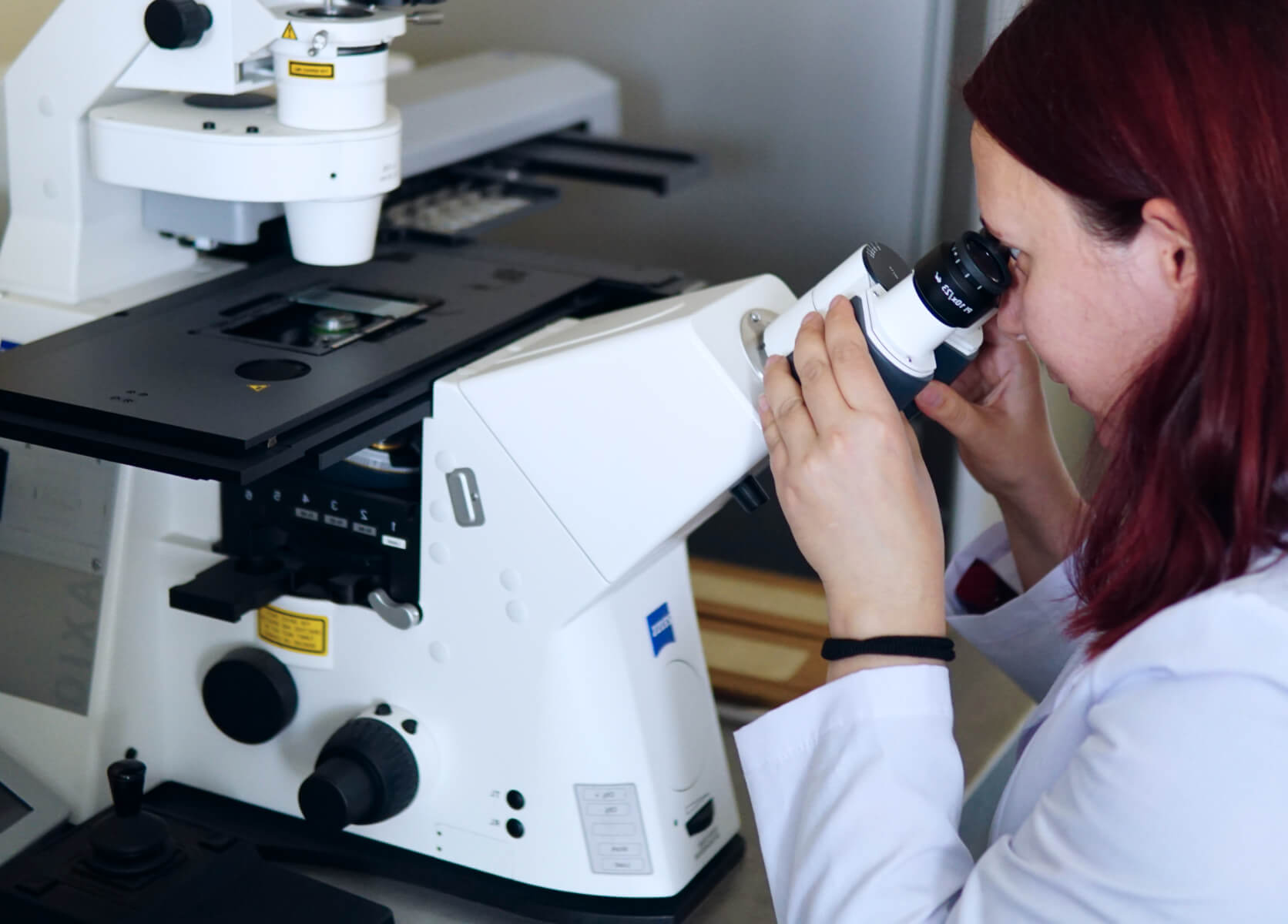The National University Complex for Biomedical and Translational Research (NUCBTR) is a strategic network of infrastructures for fundamental and translational biomedical research and includes partners from two of the largest medical universities in Bulgaria, the Medical University of Sofia and the Medical University of Plovdiv, as well as a number of hospital and research centers. At the core of the University Complex is the unification of the largest biobanks for the storage of biological material and clinical data in the country.
NUCBTR links existing resources, achieving a critical mass of expertise and technological opportunities, creating conditions for developing research in the field of molecular medicine, genetics and epidemiology in Bulgaria in the post-genomic era. The purpose of creating and developing the University Complex is to accelerate the transition between fundamental research and clinical practice in order to improve the prevention, diagnosis and treatment of the most important diseases for society.
Based on the international expert assessment, NUCBTR has been assessed as one of 4 infrastructure complexes, which are nationally significant infrastructures and have the potential to participate in pan-European research infrastructures. MMC and NUCBTR are included in the National roadmap of the scientific infrastructure in Bulgaria from its creation in 2010.

Molecular Medicine Center
In agreement with the requirements of the post genomic era MMC has a contemporary Cell Culture Core situated on the territory of the Cell Signalling Laboratory of the Department of Medical Chemistry and Biochemistry. The Cell Culture Sector is equipped with equipment for basic cell biological research and EBV transformation, as well as maintaining stable cell lines. The Cell CultureCore will allow the research groups and their external collaborators to carry out functional genomic studies for elucidating the mechanisms of inherited disorders. At the same time the facility will assist the enlargement and diversity of our Biobank collection, through inclusion of cell and tissue culture samples.
Cell Signalling. The major research topics in the Cell Signalling Group are related to the investigation of molecular mechanisms of proliferation in different model systems, with special emphasis on signal transduction pathways, protein kinases, MAP kinases, transcriptional factors, regulation of the cell cycle etc.One of the major achievements of the group is the elucidation of the molecular mechanisms regulating cell growth and differentiation under normal and pathological conditions. The team discovered for a first time cell type specific mechanisms of the EGF-induced MAPK activation in human epidermal keratinocytes and dermal fibroblasts. Another study is directed at establishing more profound functions of the regulator of the actin rearrangements in the cells, the Rho GTPase Rac1, which may be of significance for the development of new strategies to delay the processes of skin ageing, to accelerate the processes of wound healing or to inhibit the abnormal growth of skin tumour cells. The research activity of the team is also focusing on discovery of compounds displaying selective inhibition of tumour cells.
Equipment:
All necessary equipment complies with class II facility requirements and includes:
2 seats laminar flow cabinet
CO2 cell culture incubator
Leica inverted and fluorescent microscopes
Automated fluorescent system InCell Analyzer 6000 (GE Healthcare) Flow-cytometer Navios (Beckman Coulter)Cryogenic vessel Cryostor (110 l) Deep freezers at - 800C and standard low-temperature upright freezers -20oC.
Analysis of Bioactive Compounds. The Group for Analysis of Bioactive Compounds is experienced in: (i) chromatography based analytical techniques for determination of low molecular biomarkers in biological fluids; (ii) synthesis and analysis of peptides and peptidometics. Several original HPLC based methods have developed in the laboratory since its foundation. Recent achievement of the team is the development of new approach for analysis of biothiols (cysteine, homocysteine and glutathione) in biological fluids and for assessment of protease activity. Other activity of interest is the area of apoptosis research, especially - the proteolitic control of apoptosis. The main work in this area is focused of development of new fluorogenic assay for caspases and identification, isolation and purification of caspase inhibitors from natural sources. Chromatography based method for simultaneous analysis of several caspases usinga single sample is another original achievement of the laboratory team. Potent and specific caspase inhibitor was isolated from Tribulus terrestris.
The team relies on the following equipment:
Tandem Mass Spectrometer for analysis of low molecular compounds;
HPLC system
liquid scintillation counter
multifunctional ELISA plate reader
PCR instruments

